The city - sliced, diced and served with a dash of sauce
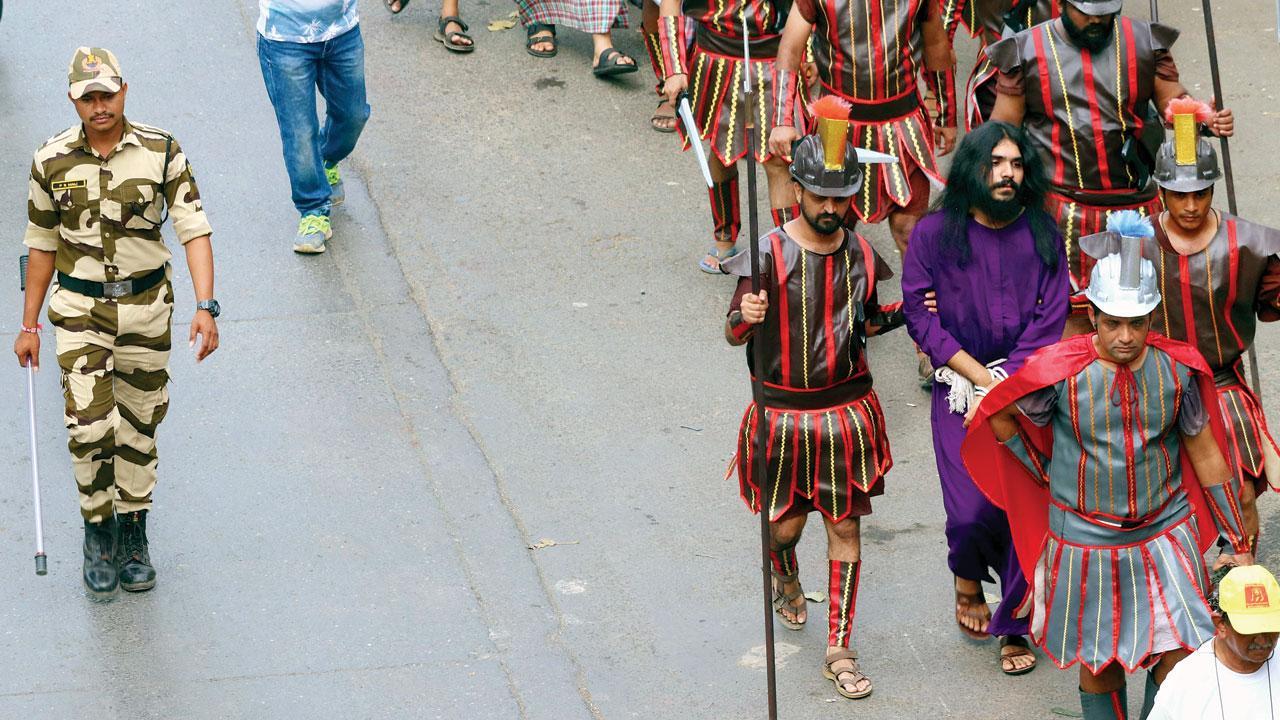
Pic/Anurag Ahire
Walking down the right path
ADVERTISEMENT
A Maharashtra State Security Corporation guard walks alongside a procession depicting the re-enactment of the Stations of the Cross on Good Friday en route to Sacred Heart Church in Santacruz.
Demographic covered at SP
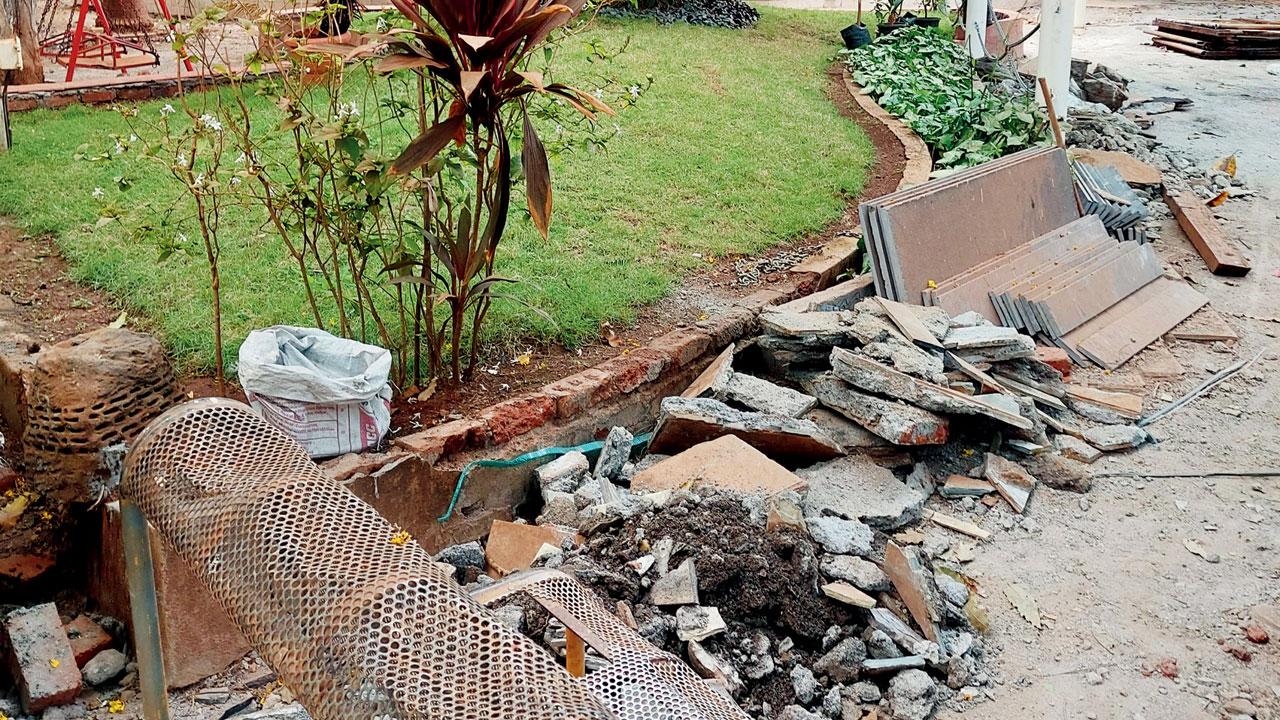
The ongoing work in the children’s park
Months ago, the Shivaji Park Open Gym (SPOG) underwent a facelift. Today, fitness freaks have a new flooring, shiny dumbbells and a neater space in which to work out. Recently, our silver set got a pleasant surprise as the ‘Aaji-Aajoba Udyan’ (which is the senior citizen’s garden in the maidan) got renovated. Now, the children’s park in the maidan is also going in for repairs, and play equipment looks set to be replaced.
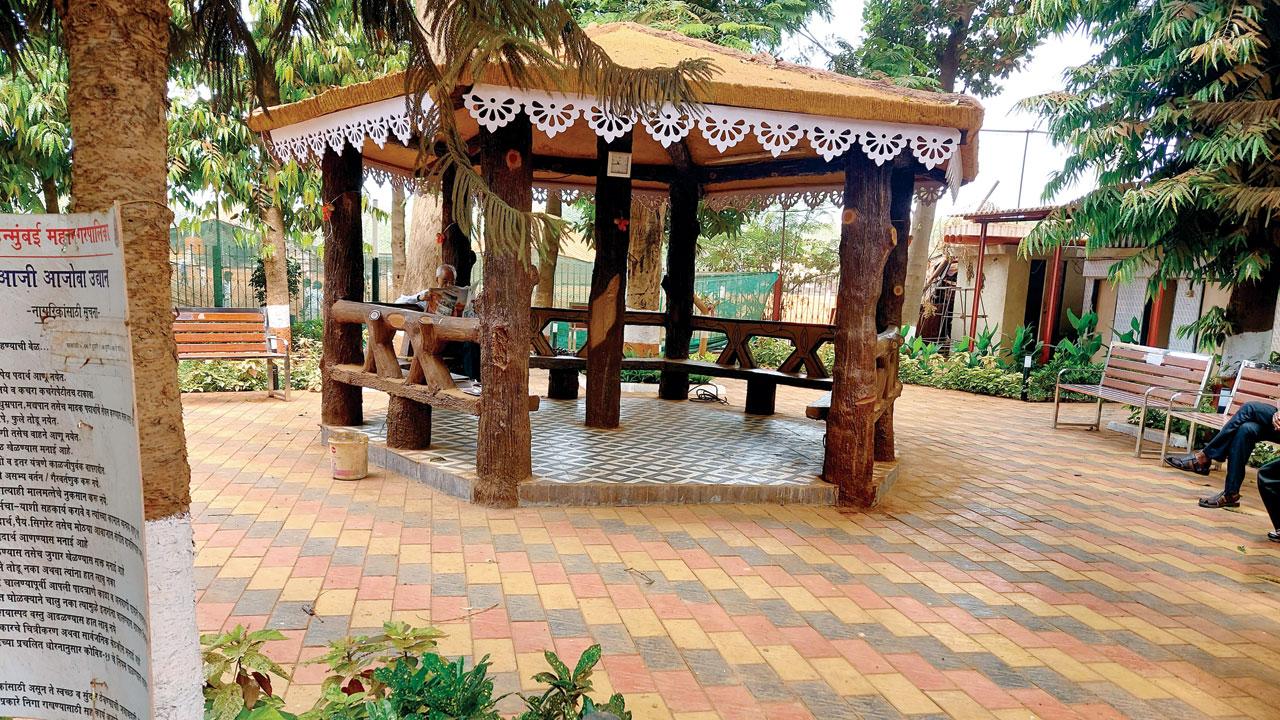
A gazebo inside the senior citizen park
Incidentally, all these amenities are located in one line, beside each other. For this long-time visitor to Shivaji Park, it seems as if the popular open space has managed to ensure that the entire demographic is taken care of. The old, the middle-aged and young, and the child — Shivaji Park, you’ve got them all covered.
Stick to safety
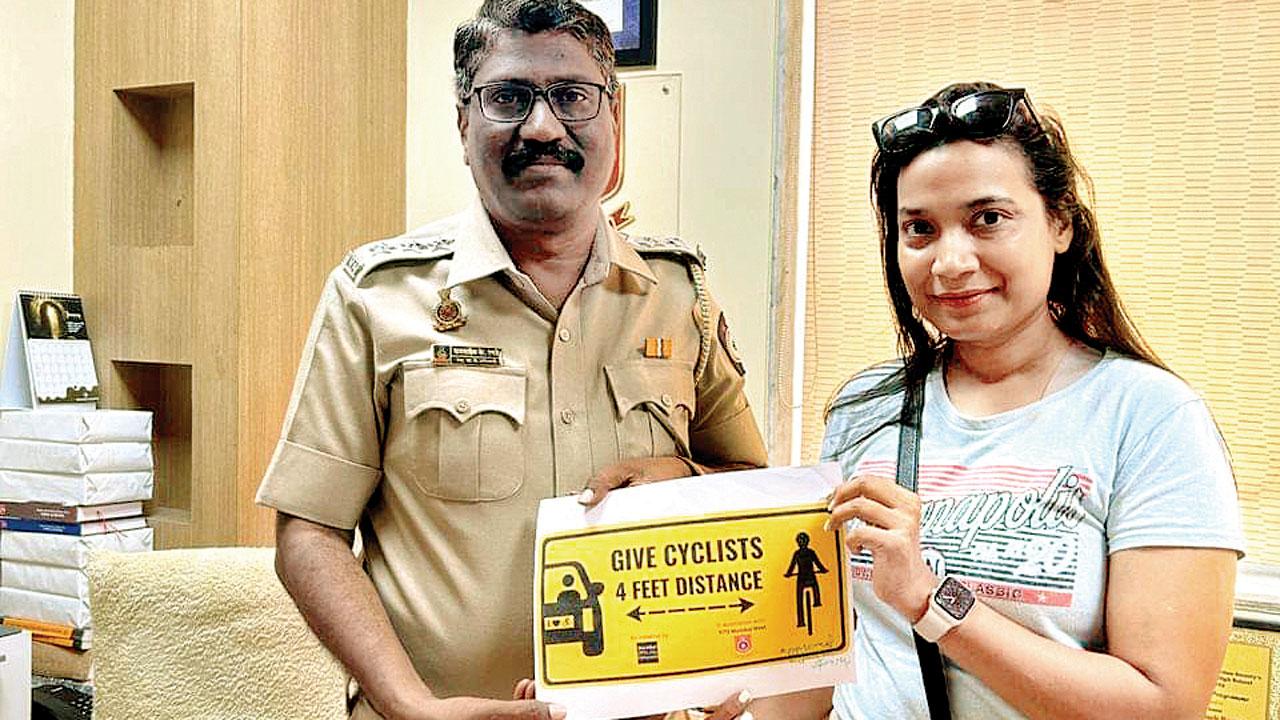
Saini and an RTO officer with the approved sticker
After losing her friend Avtar Saini —who was riding a bicycle — to a reckless mistake by a taxi driver, cyclist Jui Inamdar set out to make Mumbai safer for its cycling community. Saini got RTOs to approve posters to be stuck on cars that request four-wheelers to maintain a four-foot distance from cyclists. “A mere brush of a vehicle can cost a cyclist’s life. These stickers serve as tangible reminders to promote responsible road behaviour.”
Acing robotics
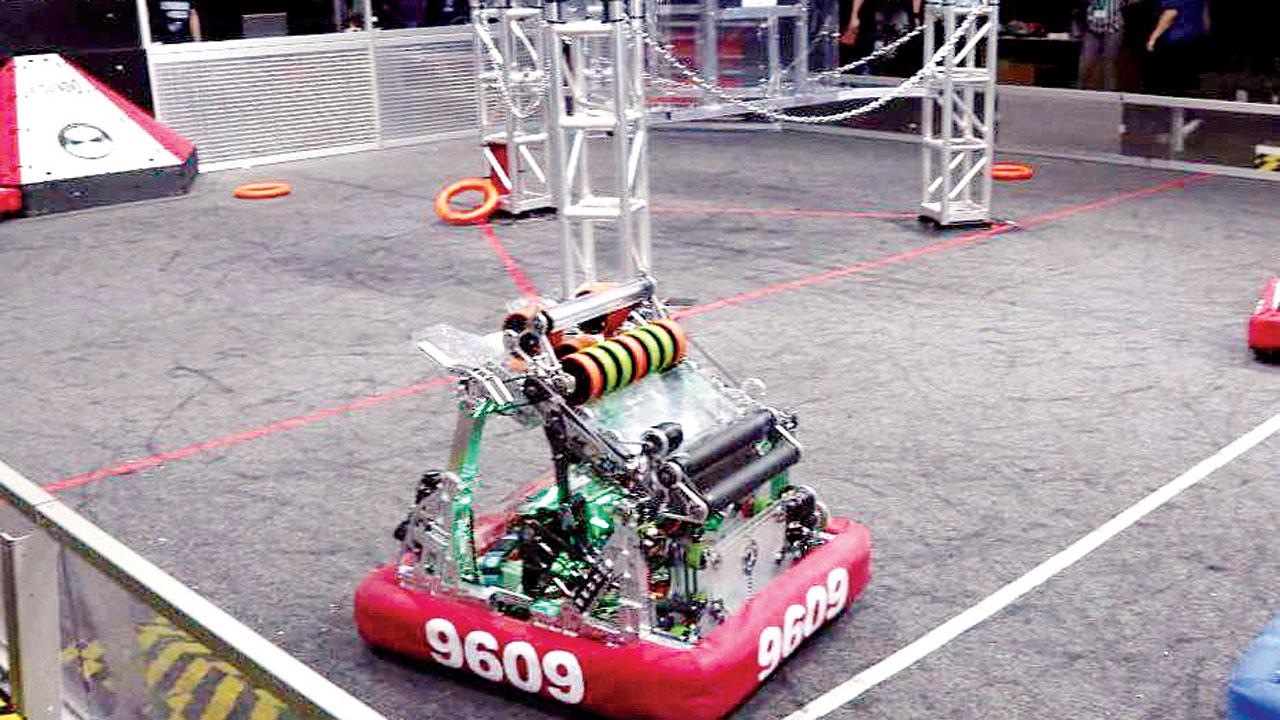
The robot created by the team was required to collect orange rings spread across a 26 x 54-ft mat
Ninth grader Aakrit Agrawal from The Cathedral and John Connon School returned to Mumbai with another feather added to his hat. Nineteen school-going students from across the city joined him in his winning spree at the First Robotics World Championship (FRC) in Houston. “We started working two months ago, when the competition was announced. We would sit through the weekends and even work after school to make the FRC robot,” Agrawal told this diarist. Victory, however, didn’t come easily. “We lost the very first round because of a wiring failure; our robot couldn’t be driven straight ahead,” Agrawal, who was in charge of driving the robot, recalled. “However, we learnt from our mistake and cleared all other rounds undefeated. It was a surreal moment for us. The team [Team Paraducks] is now preparing for the World Championship [April 17 to 20] as we speak,” the 14-year-old signed off.
Rebuild after the war
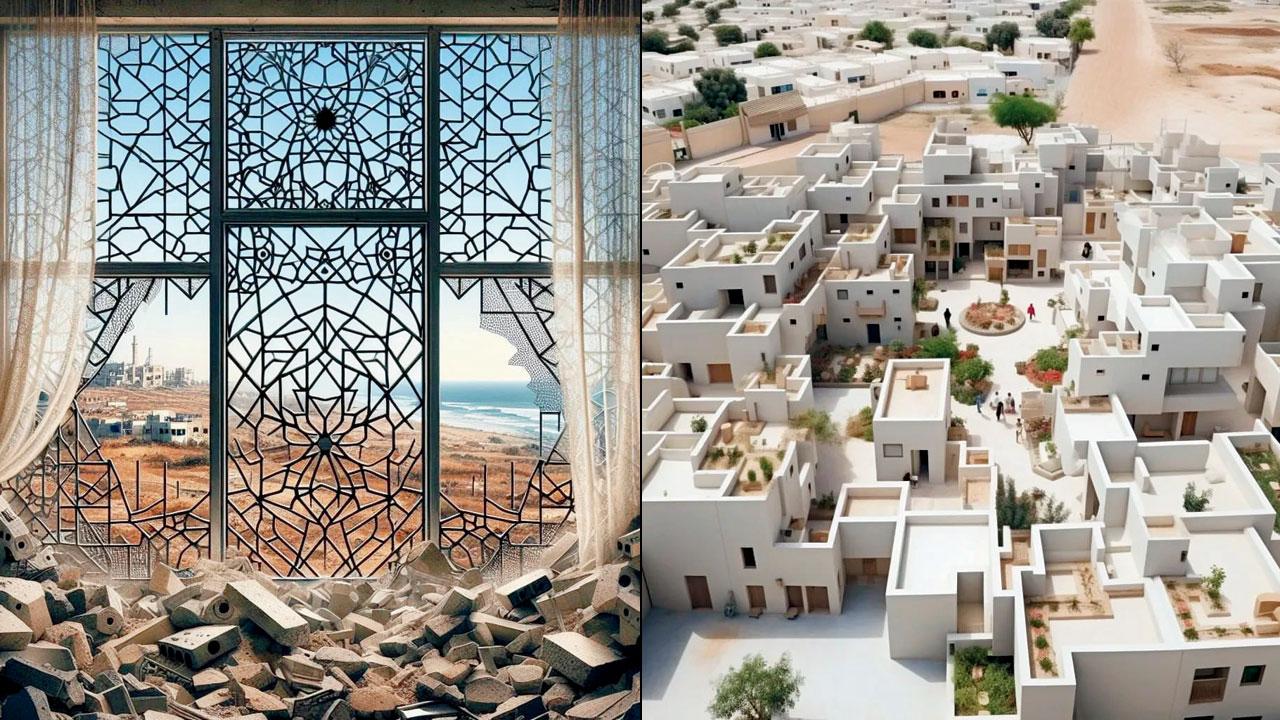
(Left) An AI-generated image shows parts of collapsed buildings that can be salvaged for reuse; (right) a small community resettled using Second Responder Protocols
Amid war-torn Gaza where countless families have lost their homes in the Israeli-Palestinian conflict, a trio from Mumbai came up with a plan titled Gaza: 2nd Responder Protocols, to help the city take immediate measures of retrieving homes from debris. “The presentation was a part of The 10th Advanced Architecture Competition, organised by the Institute for Advanced Architecture of Catalonia, where the theme was designing in the world of AI [Artificial Intelligence] or with AI,” explained Mustansir Dalvi, former professor of architecture at Sir JJ College of Architecture. He collaborated with Dr Smita Dalvi, professor at Pillai College of Architecture and her final year student, Faisal Shah. The presentation showed how conventional methods used by first responders (in case of emergencies to search for survivors) can be upscaled to construct homes from salvaged parts of the fallen structures. “We used AI-generated images to back our narrative. Our proposal can be used at any site of destruction — earthquakes, tsunami, or a war-affected city like Gaza — where immediate actions can alleviate the people in distress and provide them with a shelter. We see these protocols as an initial step towards a return to urbanity,” Dalvi added. The trio was given an honorary mention in the competition, and secured joint fifth position internationally. Entries were judged on the basis of narrative capacity, relevance, design quality, innovation and using an integration of AI and non-AI tools.
 Subscribe today by clicking the link and stay updated with the latest news!" Click here!
Subscribe today by clicking the link and stay updated with the latest news!" Click here!







